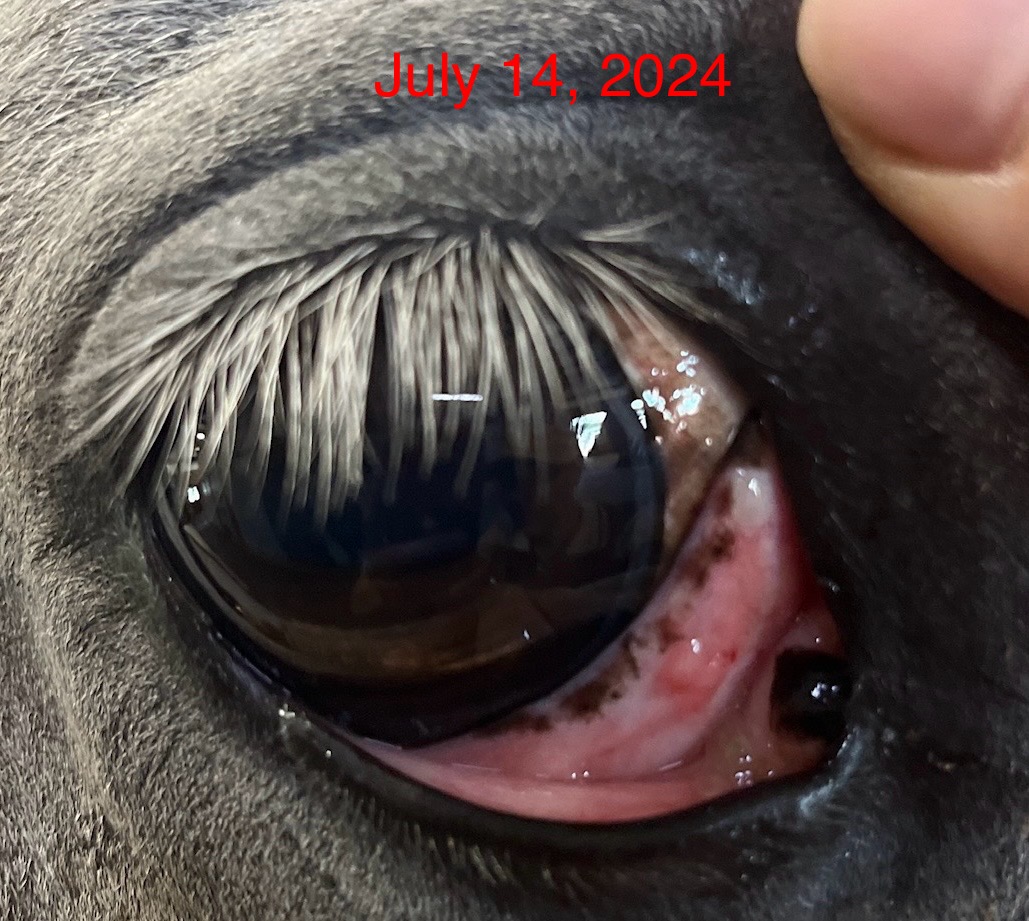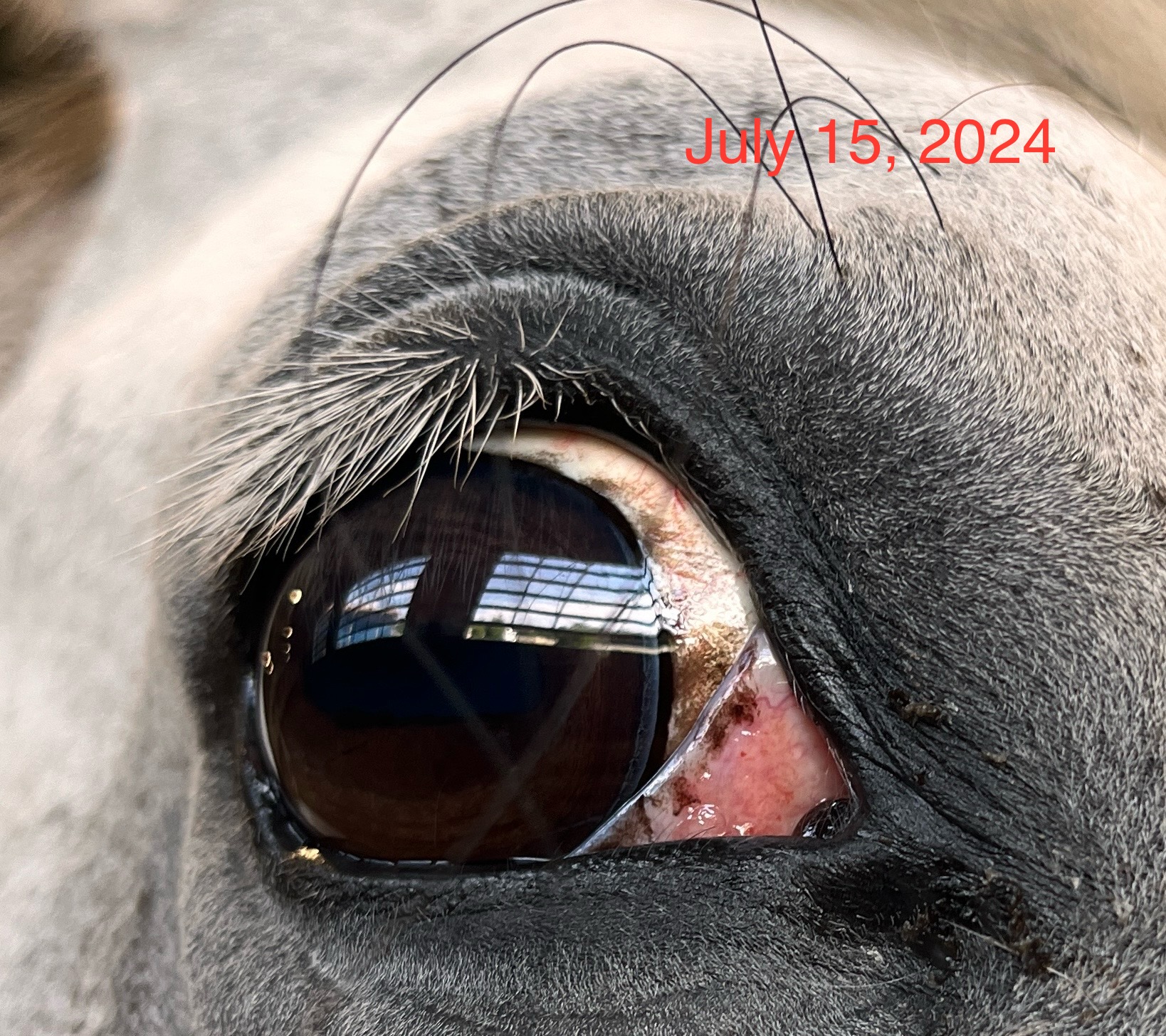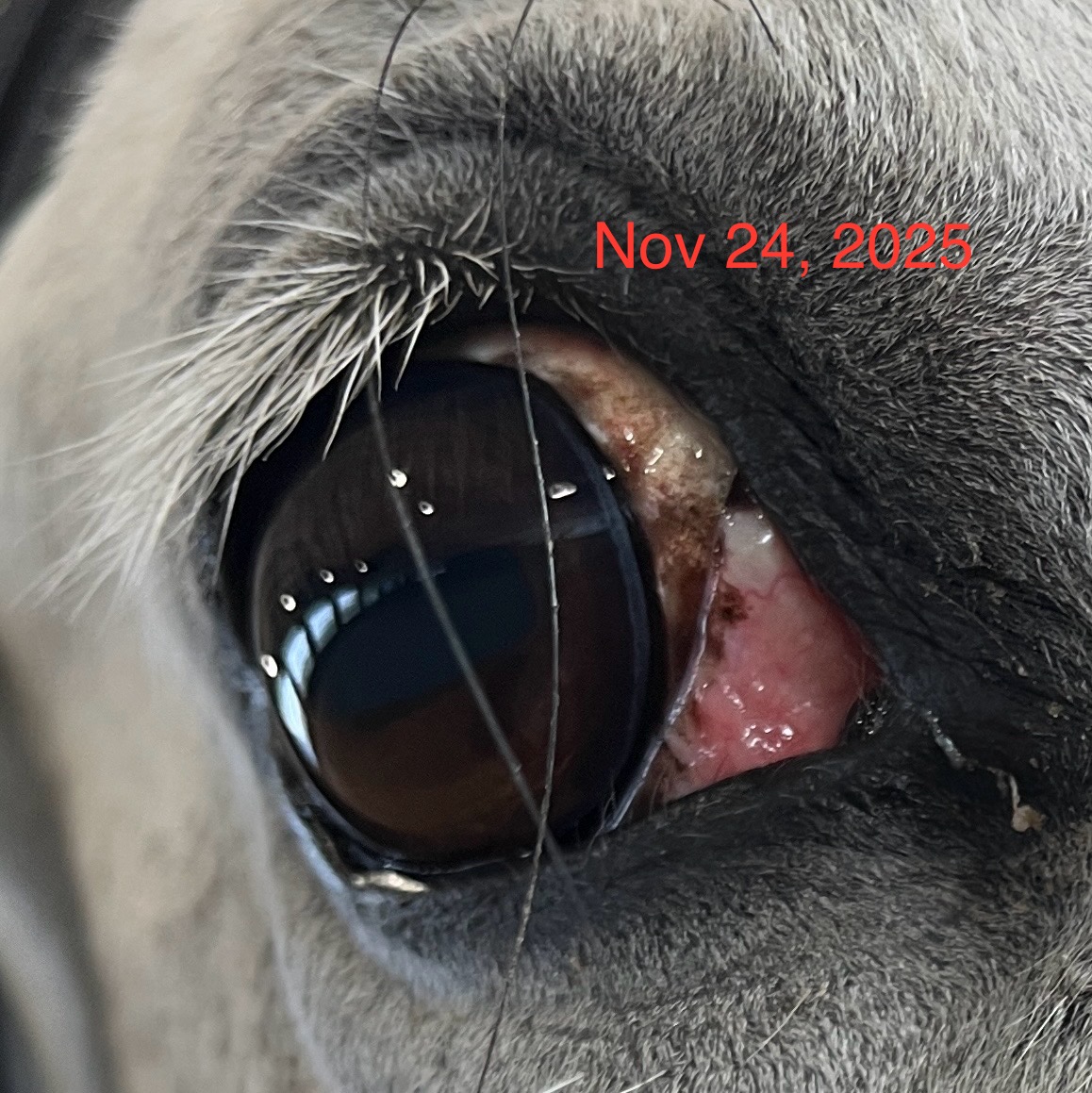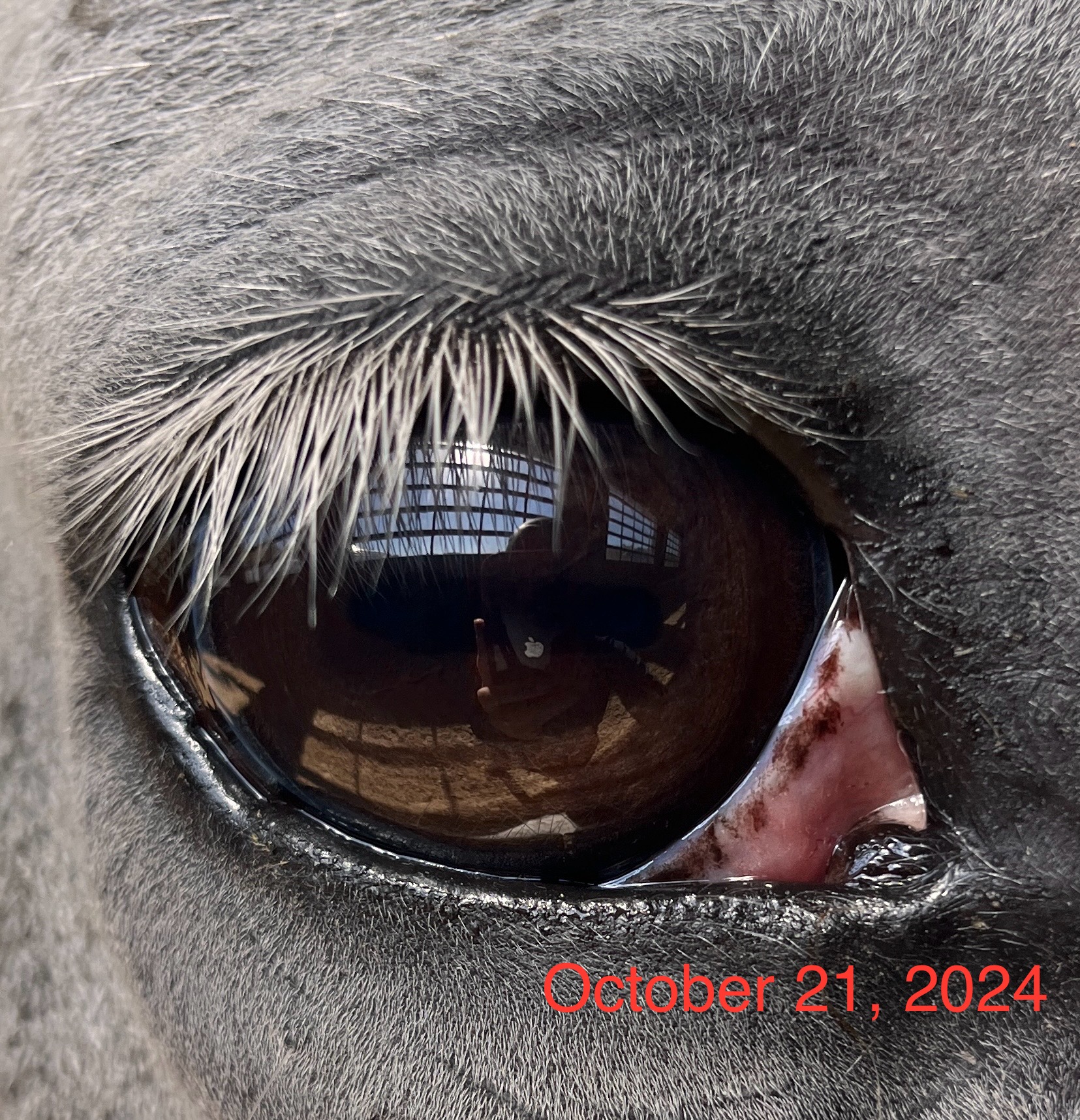A couple of ophthalmologists said, based on looking at photos, my 11 year old gelding probably has squamous cell carcinoma of the third eyelid. 2 of the 3 different vets who examined him in person (primary reason they were out was for a lameness exam & the eye was a “by the way, can you look at this?”) said it could be UV irritation or SCC & one of them gave me an ointment to use, saying if it didn’t clear up it could be biopsied; one said the eye looked fine to him. It was first noticed in July of this year. The ointment didn’t seem to have an effect.
My options - biopsy, wait for results, and if positive for SCC, remove the third eyelid.
Or skip the biopsy, based on the opinions of the two ophthalmologists, and just have the eyelid removed and sent to histopathology for confirmation.
Less money and stress for my horse, and I don’t have to wait for lab results back.
Is it foolish to remove the eyelid based on photo diagnosis alone, and not do a biopsy (SCC is pretty small small… also wondering whether it could give a false negative)?
RE: eyelid excision - I’ve read a number of posts here where the excision was done at the barn, under standing sedation. One of the ophthalmologists who looked at the photos said that she does eyelid removal with the horse in stocks under deep standing sedation. So another consideration is whether to have the excision done at the barn - again, less money and less stressful for him, and also I’d be avoiding hauling him on potentially snowy roads - or haul him to a clinic for the procedure. The barn where he’s boarded is heated and has access to hot/cold/boiling water, if needed.
I’m still trying to decide who would do the excision - a local vet who does have a special interest in eyes and is considered the local “go to” for eye care (not a board certified ophthalmologist, though), has done procedures at my barn/my trainer’s barn, who I believe is very careful and who is well-thought of, and who recently built a clinic at his home about an hour away. Although he’s not my main vaccination-giving vet since moving to this barn 2 years ago, he’s taken care of my horses in the past and I have a good relationship with him.
Another option is a traveling ophthalmologist (board certified, does work on horses, but is primarily a small animal vet) who would want to do the excision in stocks, which would be at the clinic of another vet in the area (coincidentally, at the clinic of the vet who said he thought my horse’s eye was fine). An alternative is to visit her clinic which is about 2.75 hours away (again, more stressful due to hauling/hauling in winter). We’ve corresponded via email; she comes across as very professional and knowledgeable. I don’t know if she’d want him to stay at her clinic, or whether he could come home same day as the excision.
I feel like I’m going in circles on this. I want to balance not having to haul in the winter/haul more than an hour away (I don’t have a trailer and would need to figure that aspect out), stress my boy as little as possible (at his barn would be least stressful for him), and give him the chance for the best outcome possible.
Not having gone through this before, I’m not sure if I’m making a mountain out of a molehill RE: the excision - it’s been described as a simple snip - but also want to be diligent about choosing the right care, since this is his eyesight we’re messing around with. (PS sorry the pics are massive - not sure how to adjust that)
Any input/advice/shared experience would be greatly appreciated!




